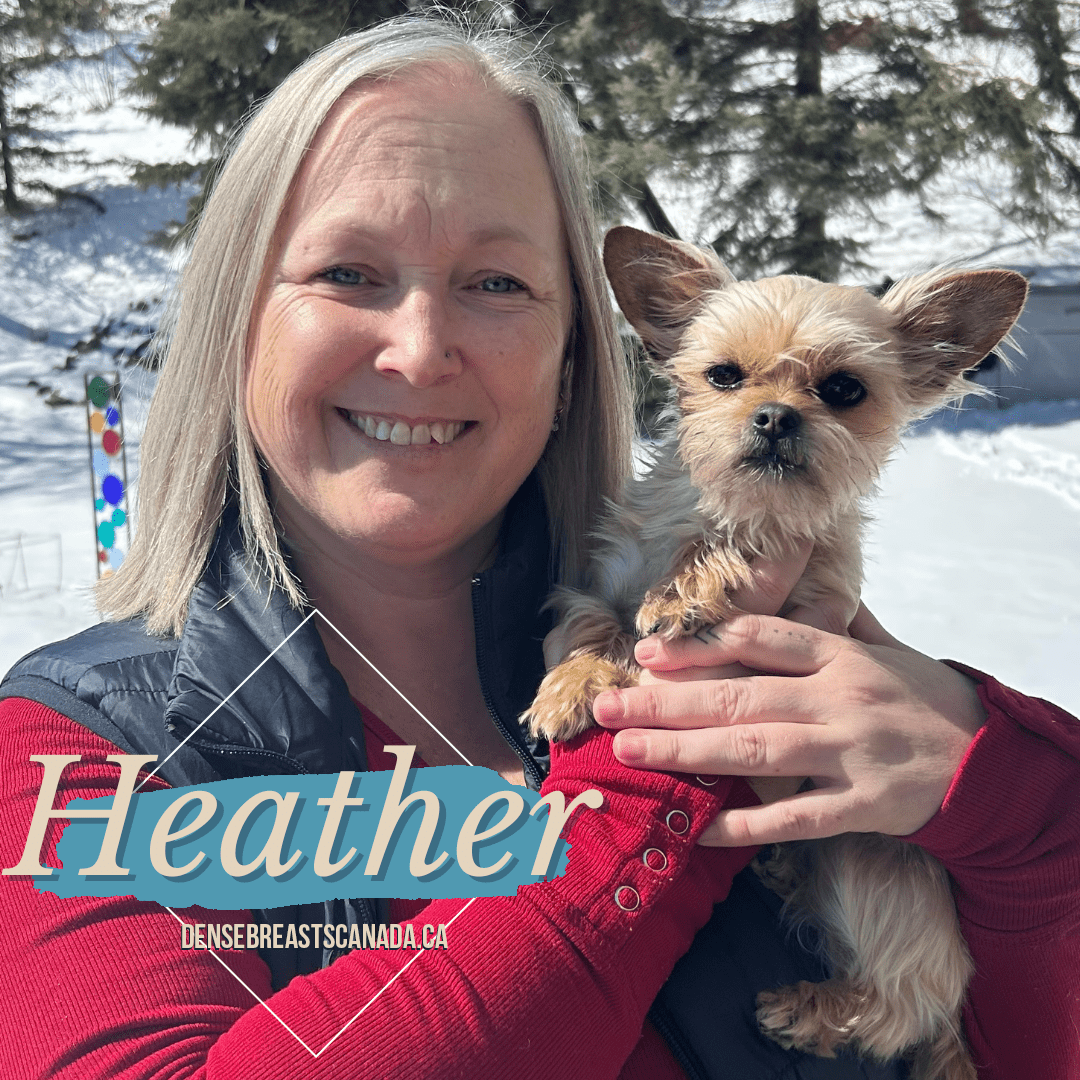Heather

I did everything right. I followed the guidelines. I trusted the system. And yet, I was failed.
I?m Heather Brister, a 48-year-old kindergarten teacher, mother of three, and now, a breast cancer survivor?though that word barely covers the sheer hell I?ve endured over the past few years.
It all started in May 2021 when I felt a small lump in my right breast?no bigger than the eraser on the end of a pencil. I was 44 at the time, too young under Manitoba?s policy to qualify for routine screening. Thankfully, my doctor took my concerns seriously and scheduled a diagnostic mammogram. But when I arrived at the clinic, I was met with dismissiveness.
?You?re really young, so I?m sure this is nothing,? the mammographer reassured me. I clung to that false hope. Nothing showed on the scan. ?It looks great,? she said. And that was it. I was sent home, relieved but uneasy. I had no family history of breast cancer, so I convinced myself I had nothing to worry about. I never received a report from that mammogram and, at that time, I didn’t know that was something I should even ask for.
Fast forward eight months. I was on recess duty, bundled up in my winter jacket, when my arm brushed against my side. There it was. The lump. Bigger. Harder. Obvious even through layers of clothing. My stomach dropped.
Panic set in. I rushed back to my doctor, and this time, his reaction was different. ?Oh, Heather, I am so sorry,? he said, his voice heavy with concern. ?This is probably breast cancer.?
He ordered another mammogram immediately. Still, the results came back clear. The lump?now 10 centimeters?was invisible to the scan. I was told once again, ?Nothing to worry about. I see nothing here.? But how could that be? I knew my body. I knew something was wrong. Because of the obvious lump that could be felt, I was sent that same day for more tests. An ultrasound immediately showed a tumour and a doctor was called in to perform a biopsy.
On January 20, 2022, I received a call that changed my life. I was diagnosed with triple-negative advanced invasive ductal carcinoma.
Stage 3C. The cancer had spread to my lymph nodes. And all the while, my mammograms had failed to see it.
I later learned that I have dense breasts?a fact that no one had ever mentioned to me before my diagnosis. Dense breast tissue and cancer both appear white on a mammogram, essentially masking tumors from detection. It wasn?t until I sat across from my oncologist, numb from the news, that I even heard the term ?dense breasts? for the first time. ?Mammograms alone don?t work for you,? he explained. ?They?re just a screening tool.?
I wish someone had told me that sooner. I wish I had known to ask about my breast density. I wish someone had looked me in the eye and said, ?Mammograms might not be enough for you. You need additional screening.?
Instead, I was left in the dark. And that ignorance cost me dearly.
I was shocked to learn that standard mammograms can miss a significant number of breast cancers in women with dense breast tissue. For those with the highest density (category D), nearly 40 percent of cancers go undetected. Even in category C, about a quarter of cases are overlooked. This means that for many women like me, a mammogram alone isn?t enough.
Manitoba has taken a step in the right direction by informing women of their breast density in their mammogram result letters. But what good is that information if no action follows? Women are being told they have dense breasts, yet they aren?t given the crucial next step?access to further screening that could save their lives.
My treatment was grueling. Months of chemotherapy, a mastectomy, reconstruction, radiation?the kind of suffering that breaks you down physically, mentally, emotionally. The kind of suffering that steals parts of you you?ll never get back. The kind that my family had to watch me endure, helpless.
If my cancer had been caught at Stage 1, I wouldn?t have had to go through this hell. A mastectomy might not have been necessary. The chemo that poisoned my body and left me with permanent reminders might have been avoided. The constant fear of recurrence might not loom over me every single day.
I don?t share my story for sympathy. I share it because I don?t want anyone else to go through what I did.
Manitoba?s policies are failing women. Women with dense breasts need more than just a mammogram?they need access to supplemental screening, such as ultrasound or MRI. Women under 50 should be able to self-refer for a mammogram. Your information about your breast density shouldn?t be buried in a medical report or casually mentioned after a diagnosis. It should be front and center. It should be something every woman knows to ask about.
I live with the scars, both seen and unseen, of a system that failed me. And I will not stay silent.
If you are reading this, I beg you: ask about your breast density. If you?re told you have dense breasts, demand additional screening. Advocate for yourself in a way I didn?t know how to. It could save your life.
As for Manitoba? It?s time to do better. Lives depend on it.
